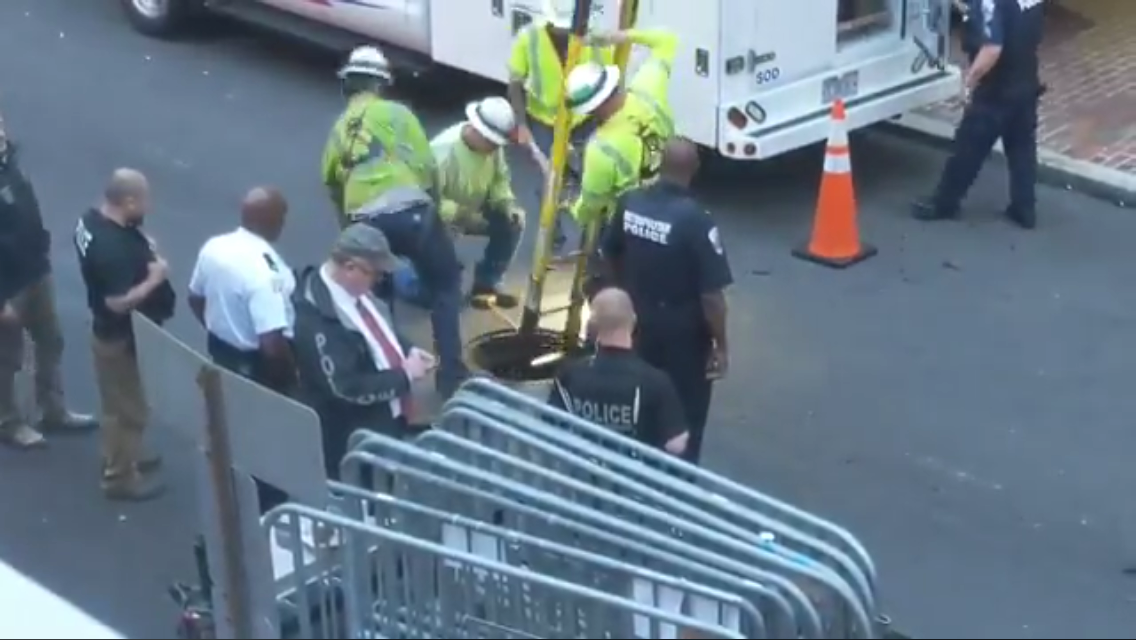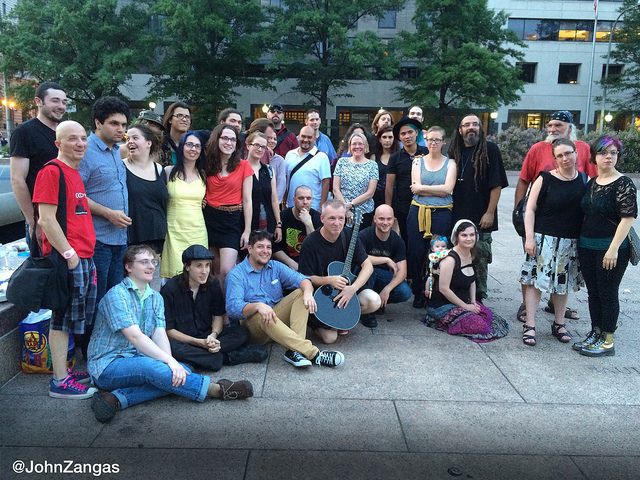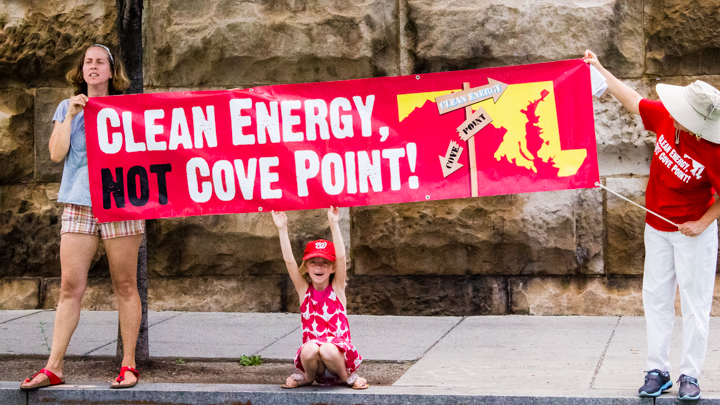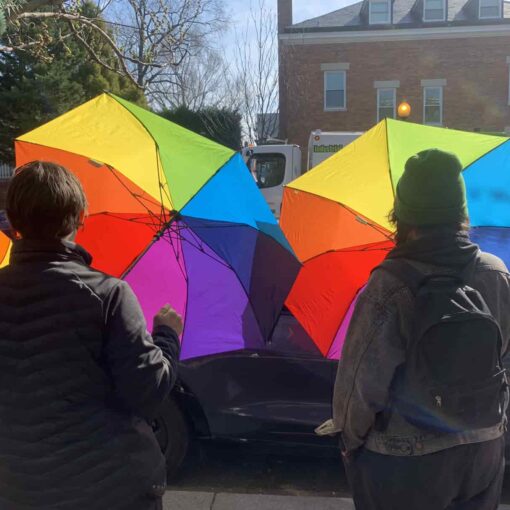Washington, DC–Power was cut to the Embassy of Venezuela on Wednesday night after a day of skirmishes between supporters of the activists inside and opposition blockading the building. The conflicts were sparked as activist supporters tried to deliver food to Embassy protectors inside. Supporters were confronted by opposition during each attempt they made to circumvent the blockade.
The skirmishes resulted in minor injuries for at least four activists outside the embassy. While inside, Embassy protectors have to deal with no means to cook food, communicate over WiFi or refrigerate what perishable food they have remaining. They remained sealed off from the opposition who have been trying to gain access since the Venezuela coup attempt 9 days ago.
Over two dozen Secret Service agents assigned to guard the Georgetown red-brick building watched as food deliveries were attempted but stepped in only after conflicts erupted. They arrested three activist supporters but no pro-Juan Guaidó coup supporters for their part in the confrontations.

Jerry Condon, 72, President of Veterans For Peace, was thrown to the ground and his face was bloodied as he attempted to carry food past the pro-coup supporters’ blockade. Five Secret Service agents jumped on him and arrested him. He carried only a cucumber.
Jason Charter, another activist who attempted a food delivery earlier in the day, was choked and knocked to the ground, He suffered minor injuries as a crowd of opposition surrounded and flung him away from a rope he was trying to use to lift food to an window in the embassy. He was treated for injuries at a nearby hospital and released later in the evening.
A third skirmish at the front of the embassy broke out as a group of activists attempted food deliveries. Secret Service arrested Ursala Rozum, a member of CodePink, after she reacted to a person in the blockade who had already assaulted her. She was released later in the evening.

Embassy diplomats invited the activists to the Embassy of Venezuela as guests and later asked them to stand in for them after they were forced to leave the country on April 24. Activists named themselves the Venezuelan Embassy Protectors Collective and maintained an indefinite presence, holding nightly speaking events and lectures about the history of Venezuela and the role its vast mineral and petroleum reserves played in deteriorating relations with the U.S.
The embassy siege began 6 days later on April 30, the same day the self-appointed leader of Venezuela, Juan Guaidó attempted to overthrow democratically elected President Nicolás Maduro in Caracas. As the coup attempt unfolded in Caracas. about 200 Juan Guaidó supporters attempted to take over the Venezuelan Embassy in Georgetown, triggering the present siege.
Maduro agreed to and won a special election in 2018 which was demanded by Juan Guaidó. Nicolás Maduro defeated Guaidó with a 68 percent vote majority. The Juan Guaidó coup attempt failed the next day after a majority of the Venezuelan military refused to back Guaidó.
The power cut to the Venezuelan Embassy creates difficult living conditions for activists inside, but they remained committed to staying in the embassy no matter what is thrown at them. They released a statement by video on twitter although the room from which they spoke was nearly pitch black.
“The authorities just illegally turned off our electricity. We expected this and prepared for it, and we’re not leaving,” said Kevin Zeese, one of the activists inside the embassy. Zeese compared the living conditions and treatment of the activists in the embassy by U.S. authorities to the effect sanctions are having on the Venezuelan people.
“It’s ironic that the U.S. government attacked Venezuela’s electric grid and now they’re attacking the Embassy of Venezuela’s electricity,” said Zeese. “They attacked Venezuela with sanctions that made food difficult to get. They’ve used sanctions to prevent us from getting food.” He ended by joining the other activists by singing, “We’re not leaving.”
As night fell, utility workers surrounded by police could be seen at the front of the Embassy of Venezuela descending into manholes. It was feared they would soon turn off water service to the embassy as well.




